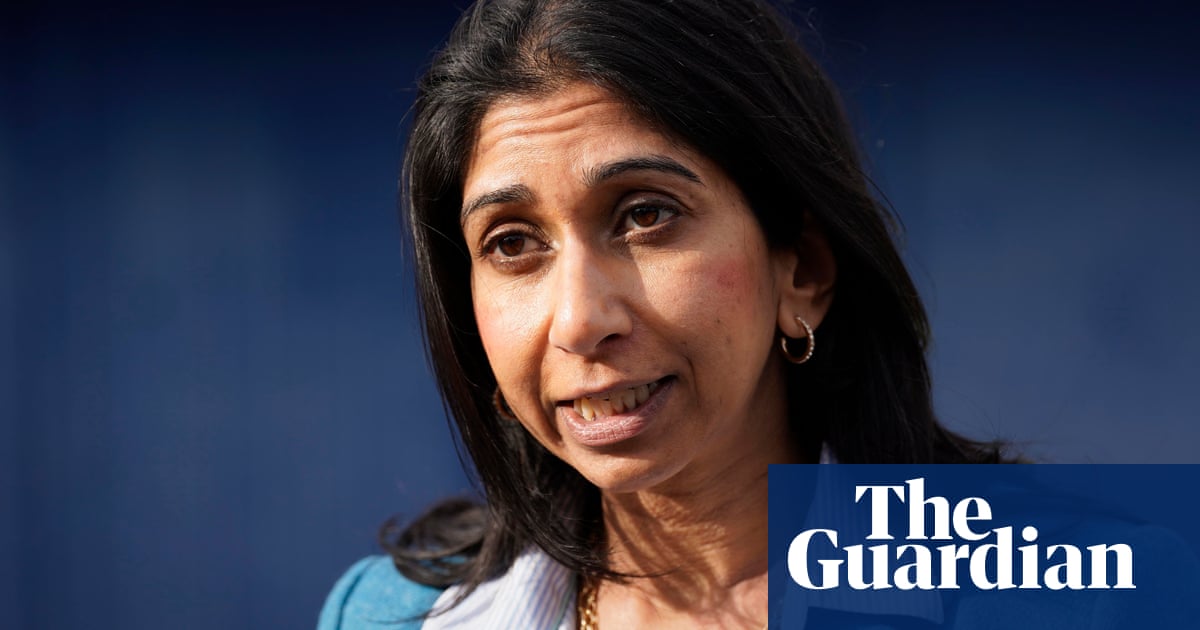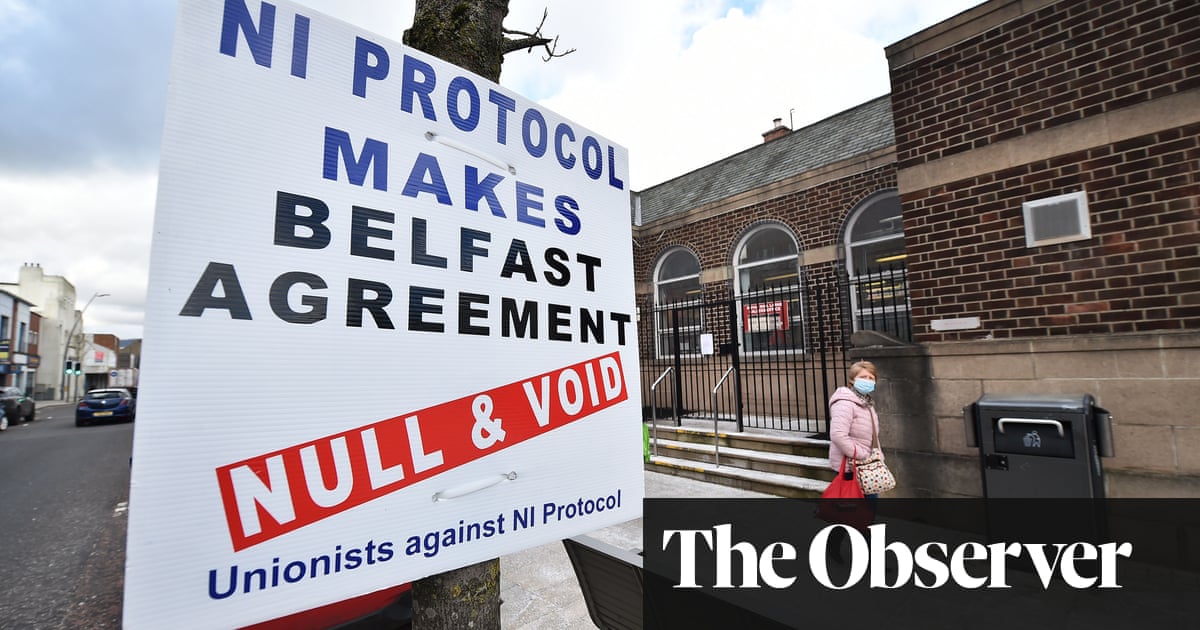
Boris Johnson has been warned there is “no legal or political justification” for his plans to override the Brexit agreement on Northern Ireland, in an extraordinary joint denunciation by the Irish and German governments.
With senior figures already warning Johnson that he risks the break-up of the union by ploughing ahead with the plan, the German foreign minister Annalena Baerbock and her Irish counterpart Simon Coveney make a rare joint statement condemning the UK for “unilaterally breaking an international agreement”.
Writing in the Observer, the two ministers suggest that Johnson’s determination to effectively override the so-called Northern Ireland protocol, which he agreed two years ago, risks undermining the “rules-based international order” just as the continent is attempting to confront Russia’s illegal invasion of Ukraine.
The two ministers say that recent elections to Northern Ireland’s assembly, which delivered a majority of members who back the protocol, showed support for the current arrangements. They add that the EU had been and would continue to be “flexible and creative” to deal with issues that have hampered trade between the region and Great Britain.
“Unfortunately, the British government chose not to engage in good faith with these proposals,” they write. “Instead of the path of partnership and dialogue, the British government has chosen unilateralism. There is no legal or political justification for unilaterally breaking an international agreement entered into only two years ago. The tabling of legislation this month will not fix the challenges around the protocol. Instead, it will create a new set of uncertainties and make it more challenging to find durable solutions.
“In these difficult times, as Russia is leading a ruthless war in Ukraine, breaking with our European peace order, the EU and UK must stand together as partners with shared values and a commitment to uphold and strengthen the rules-based international order.
“We urge the British government to step back from their unilateral approach and show the same pragmatism and readiness to compromise that the EU has shown. By working together – in partnership and with mutual respect – common ground can be found and challenges, no matter how difficult, can be overcome.”
The intervention shows a coordinated effort within the EU to back Ireland in the dispute, as well as a hardening of Germany’s position on Brexit with the arrival of the new German chancellor, Olaf Scholz. It will intensify concerns that Johnson’s decision to press ahead with the Northern Ireland protocol bill, which many legal experts believe breaches international law, will trigger a trade war with the EU as inflation continues to hit.
While the UK’s proposals passed their latest parliamentary vote last week, more than 70 Tory MPs abstained or were given permission to miss the vote. The proposals were also criticised as breaching international law by former PM Theresa May. Other senior figures not to cast a vote included the former Northern Ireland secretaries Julian Smith and Karen Bradley, and Johnson’s former attorney-general, Geoffrey Cox.
Some MPs are already plotting ways to stop the government from deploying the plans, which effectively override the existing agreement. One plan, drawn up by Sir Bob Neill, the chair of the justice committee, would hand parliament a veto over whether or not the new powers in the bill could be deployed.
Anger has been growing in Dublin since the bill was published. Leo Varadkar, Ireland’s deputy prime minister, last week accused the British government of risking the break-up of the UK with its handling of Northern Ireland. Varadkar, who is due to succeed Micheál Martin as taoiseach later this year, agreed the principles of the protocol in talks with Johnson in 2019.
He said last week that the UK government’s actions were disrespectful. “I think that’s a strategic mistake for people who want to maintain the union, because if you continue to impose things on Northern Ireland that a clear majority of people don’t want, that means more people will turn away from the union,” he told the BBC. “It’s a peculiar policy coming from a government that purports to want to defend the union.”
Liz Truss, the foreign secretary, has claimed that proposals put forward by the EU to resolve some of the trade issues created by the protocol would create more unwanted bureaucracy.












